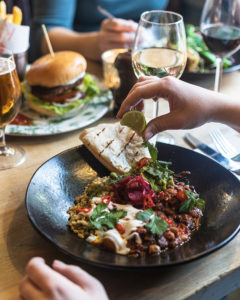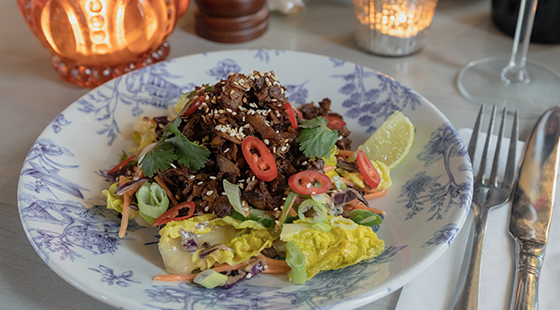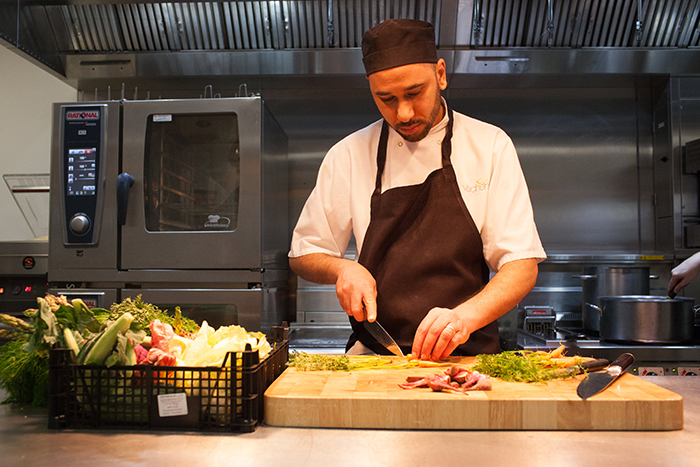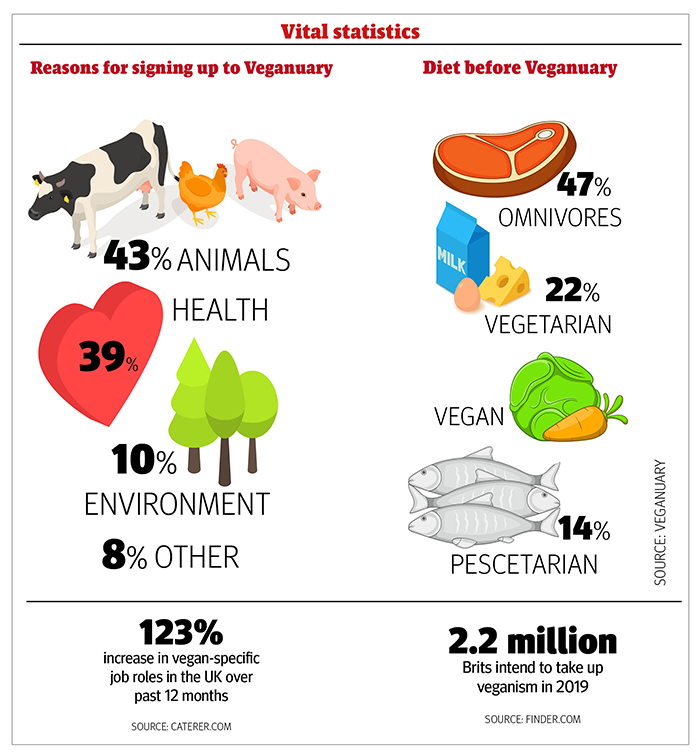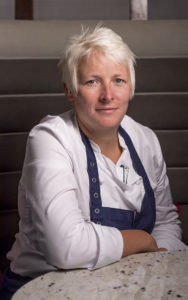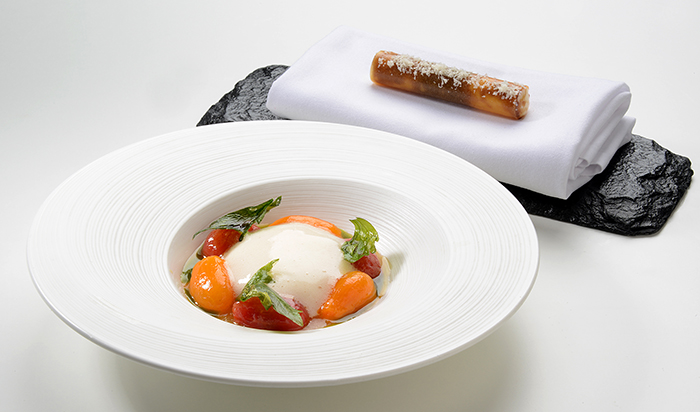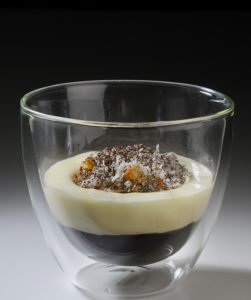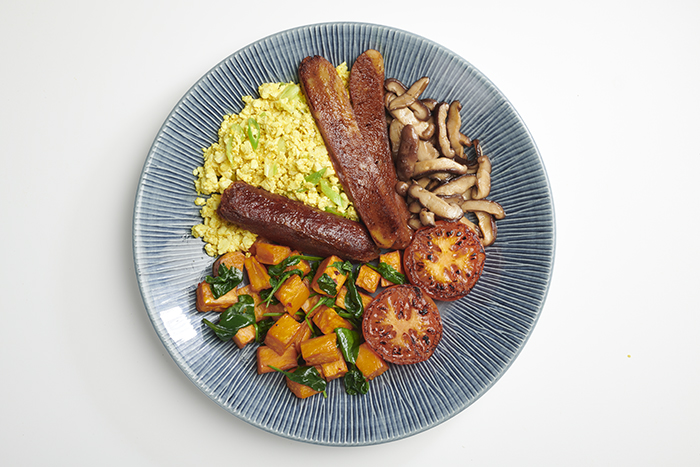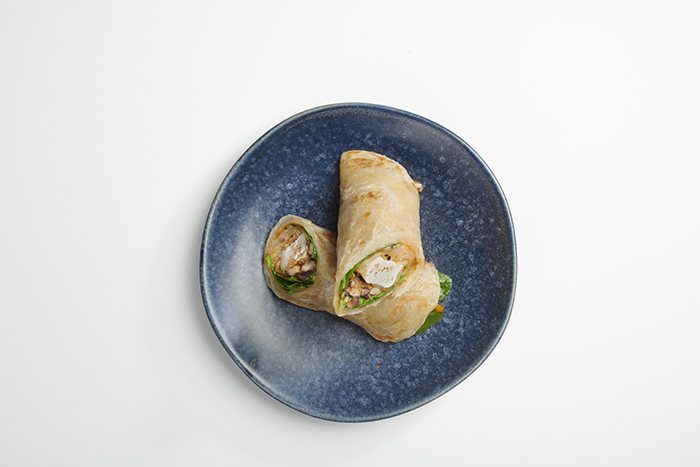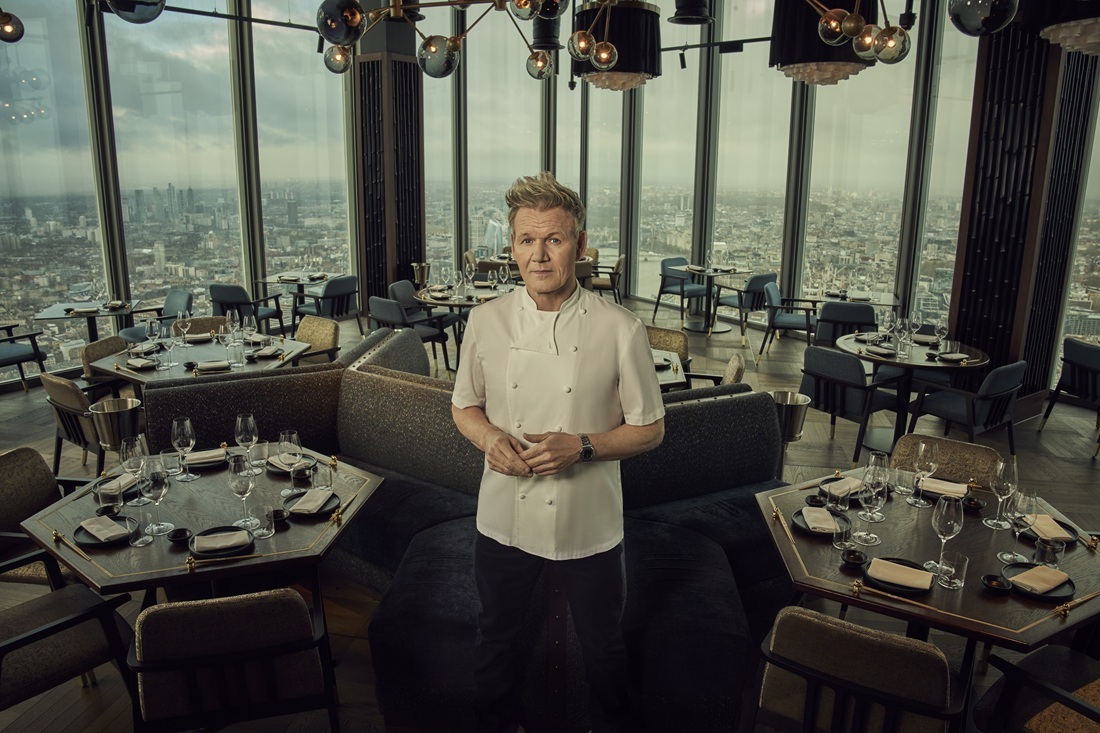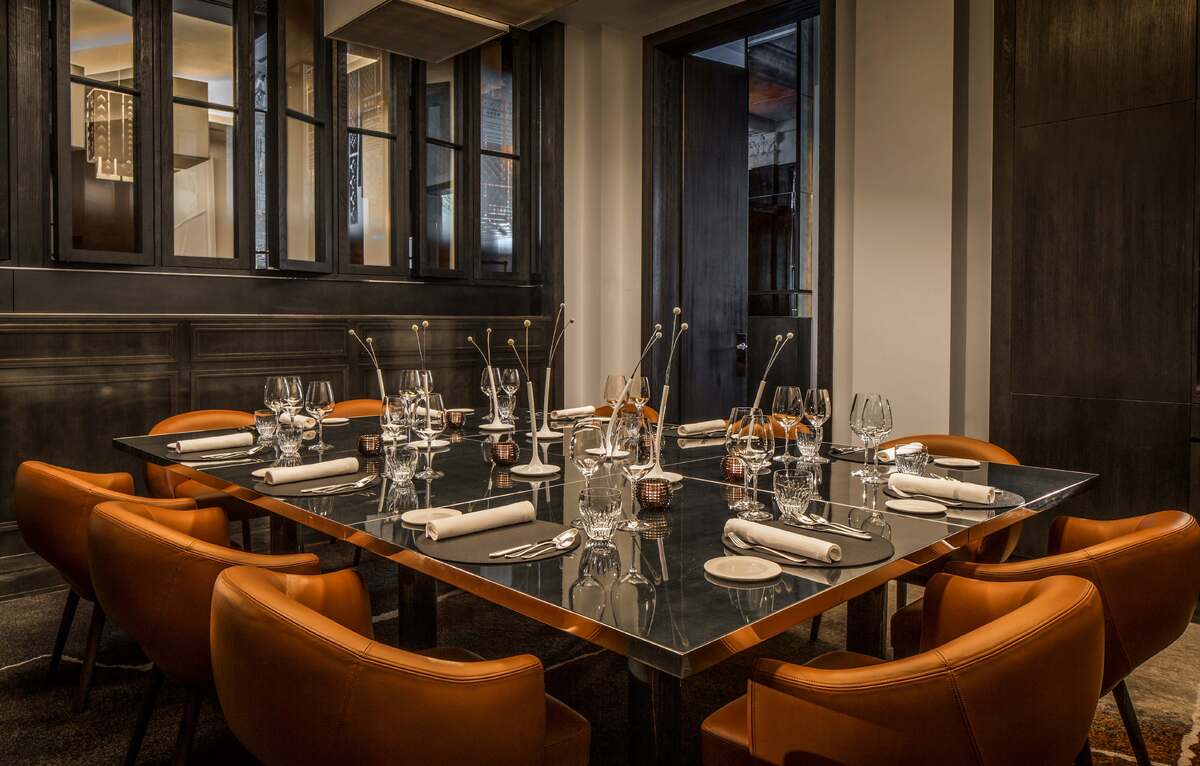Power plants: How vegan menus are becoming mainstream
The unstoppable rise of vegan food has spilled over from just Veganuary and is now a genuine shift in diners' tastes. So which restaurants and caterers are altering their menus to go beyond ‘mock meat' to truly embrace the opportunities offered by plant-based food? Janie Manzoori-Stamford found out
Hospitality operators have been upping their vegan game in their droves in 2019, as demand for plant-based food spikes. From Michelin-starred fine-dining with the Galvin brothers to the now-infamous vegan sausage roll at Greggs, all corners of the industry are embracing the UK's fastest-growing food trend.
Many restaurants, hotels, casual dining chains and caterers have seemingly hopped on the Veganuary bandwagon by launching new vegan dishes during the campaign. But has their plant-based fare hit the mark? Veganuary might seem like an opportunity to attract customers during a typically quiet period after the excesses of December, but what will the long-term impact be on their food offers?
Put simply: will vegan menus be for life, not just for January?
Green shoots
âIt not only fits with our âfresh and seasonalâ nature, but has also helped us attract a new range of customers â" both vegans and non-vegans â" that want to try something new and fresh in January.â
Last month Billâs launched a new vegan menu that included its vegan âduckâ salad, made with seitan (a high-protein, vegan meat alternative made from wheat gluten) with chilli, coriander, spring onion, cucumber, carrots, cabbage and baby gem tossed in a miso dressing with sesame seeds and lime, and a Moving Mountains burger, with a mushroom and beetroot patty. According to McIlroy, both have been some of the most successful and well-received dishes on the menu, pointing to a genuine growing appetite for plant-based eating. And the numbers agree. Sales of vegan-friendly food at Billâs increased by around 7% from 2017 to 2018.
âIn previous years at the majority of sites we offered a vegan main course one or two days a week in January,â says Kelly. âThis year, in the majority of our staff dining hubs, we serve a vegan main course every day, in addition to salads, sandwiches and freshly made grab-and-go items.â
Vacherin serves the same number of customers in January as it usually does at other times of the year, but Kelly says the sales mix is dominated by healthy food sales, a correlation that is not unique to the caterer, as Jon-Paul Reed, group food and beverage director at De Vere hotels, explains: âPost-Christmas, Veganuary piggybacks the traditional January focus on self-improvement and healthy living and, as a result, we do find that vegan and vegetarian options, as well as lighter meals, are more popular than in later months.â
âWe will be including vegan dishes as part of our central banqueting menu, which spans our portfolio of country mansion houses and event destinations,â says Reed. âAnd at De Vere Wokefield Estate we are creating a separate vegan menu for guests.â
Meanwhile fast-casual brand Leon, which has long championed plant-based, Mediterranean-inspired dishes, has also benefited from the burgeoning food trend. The company has achieved a 21% increase in sales of vegan meals since January 2018, when 46% of sales were vegetarian and 34% vegan; reaching 64% vegetarian and 55% vegan.
Leonâs head of marketing Rebecca Di Mambro says: âItâs no big surprise, especially with so many taking on Veganuary this year. But we want our guests to feel that vegan isnât just for January. Eating more plants is a long-term commitment to our bodies and the planet and we will continue developing plant-based dishes for our menu.â
What makes a menu?
So demand is growing and operators are responding, but what makes a successful vegan dish?
âPlant-based menus must be as exciting as other diet options,â says Dean Hoddle, executive chef at Silverstone race circuit in Towcester, Northamptonshire. âI believe every chef should follow a strict vegan diet for a week and end that week with a celebratory vegan meal so that they truly explore the dishes and ingredients available for vegan diets.
In short, vegan diners should be seen as no different to any other customer and food that is visually attractive and tasty to eat should be the starting point for any dish.
For Vacherin that means serving food that features interesting flavours and a variety of textures as well as a good amount of protein. The caterer also avoids replicating meat dishes, though it has successfully created a vegan burger made with pulp from its juice bars that otherwise would have been wasted.
âOur street food dishes have been most popular, such as Korean crispy tempeh burrito with kimchi rice, fennel, carrot and pickled red carrot and lotus,â says Kelly. âTofu bao buns have been a real hit too.â
The global influence on these and other vegan food offers doing the rounds in 2019 is clear. Vacherin is also hitting vegan success with its jackfruit tacos, Billâs has scored with its aubergine, lentil and chickpea dahl, and De Vere is winning with its butternut squash red Thai curry with spinach and chickpeas.
âIt doesnât have to be complicated,â says De Vereâs Reed. âAll you need is a good nutritional balance with a clear source of protein, a range of colourful ingredients, antioxidants, which are found in the colour pigments of food, and great flavour, and youâre on to a winner.â
But while international culinary inspiration is proving to be a common antidote to the old (and not necessarily entirely accurate) stereotype of boring, bland and nutritionally lacking vegan food, there are exciting examples of plant-based dishes from much closer to home.
Name dropping
âWe wanted the dishes to be consistent with everything else we served, not, oh, weâve got a vegetarian, what are we going to do? We wanted to make sure that customers having the plant-based menu felt that they were getting value for money,â she explains.
But regardless of an operatorâs approach, embracing plant-based diets means embracing a flourishing demographic of diners that is only going to get bigger. No longer the clichéd domain of humourless, tie-dye wearing hippies, vegan consumption has gone mainstream, from those who make a simple switch to oat milk in their morning latte to others who embrace a complete change in lifestyle.
And the best advice comes from Reto Frei, co-owner of international vegetarian and vegan restaurant group Tibits, with two sites in London and others in Switzerland. âDo vegan food seriously or let it be. A vegan dish should not be a compromise in taste,â he says. âIt should not taste vegan, it should just taste great.â
Wagamama: all-day vegan
When Japanese-style noodle chain Wagamama launched its new full English breakfast âwith a pan-Asian twistâ in February, it confirmed the companyâs long term commitment to plant-based menus.
The âfull veganâ features seitan âbaconâ, beetroot and seitan sausages, scrambled turmeric tofu, grilled tomato, spinach, sautéed sweet potato and shiitake mushrooms. It was introduced alongside a vegan roti wrap, comprising a Thai flatbread rolled up with spinach, mixed mushrooms, shichimi tofu and Sriracha mayonnaise.
âIn January we launched our Avanate Gardân dish â" a collaborative dish with vegan chef and influencer Gaz Oakly â" so we felt that we should give the vegan breakfast the spotlight it deserved.â
Wagamama introduced its vegan menu in October 2017, at which point it included one new dish, while the rest were existing menu items that had been modified to make them vegan friendly. Perhaps the biggest impact on the success of the chainâs vegan offer came in the way it was presented to customers.
âHaving a physical menu not only improved our guestsâ experience, but also provided something tangible to communicate and use as a tool to visually show how many options we have available,â says Hyland.
Executive chef Steve Mangleshot swapped the chicken for vegan substitute seitan and introduced it during a three-month trial at the brandâs innovation kitchen, Noodle Lab, where it remains the most popular item on the menu. Following a hugely successful trial, vegatsu is now available at the groupâs 130 restaurants nationwide.
The banned wagon: the latest in free-from, vegan and vegetarian products >>
Veg out: whatâs the future for meat on menus? >>
Get The Caterer every week on your smartphone, tablet, or even in good old-fashioned hard copy (or all three!).



